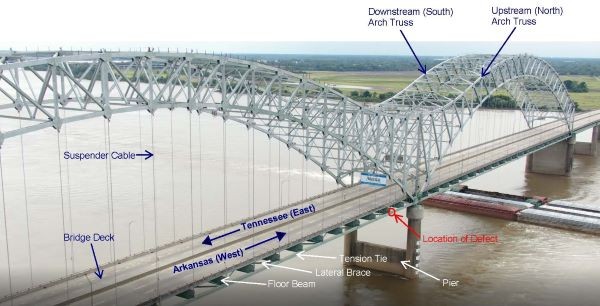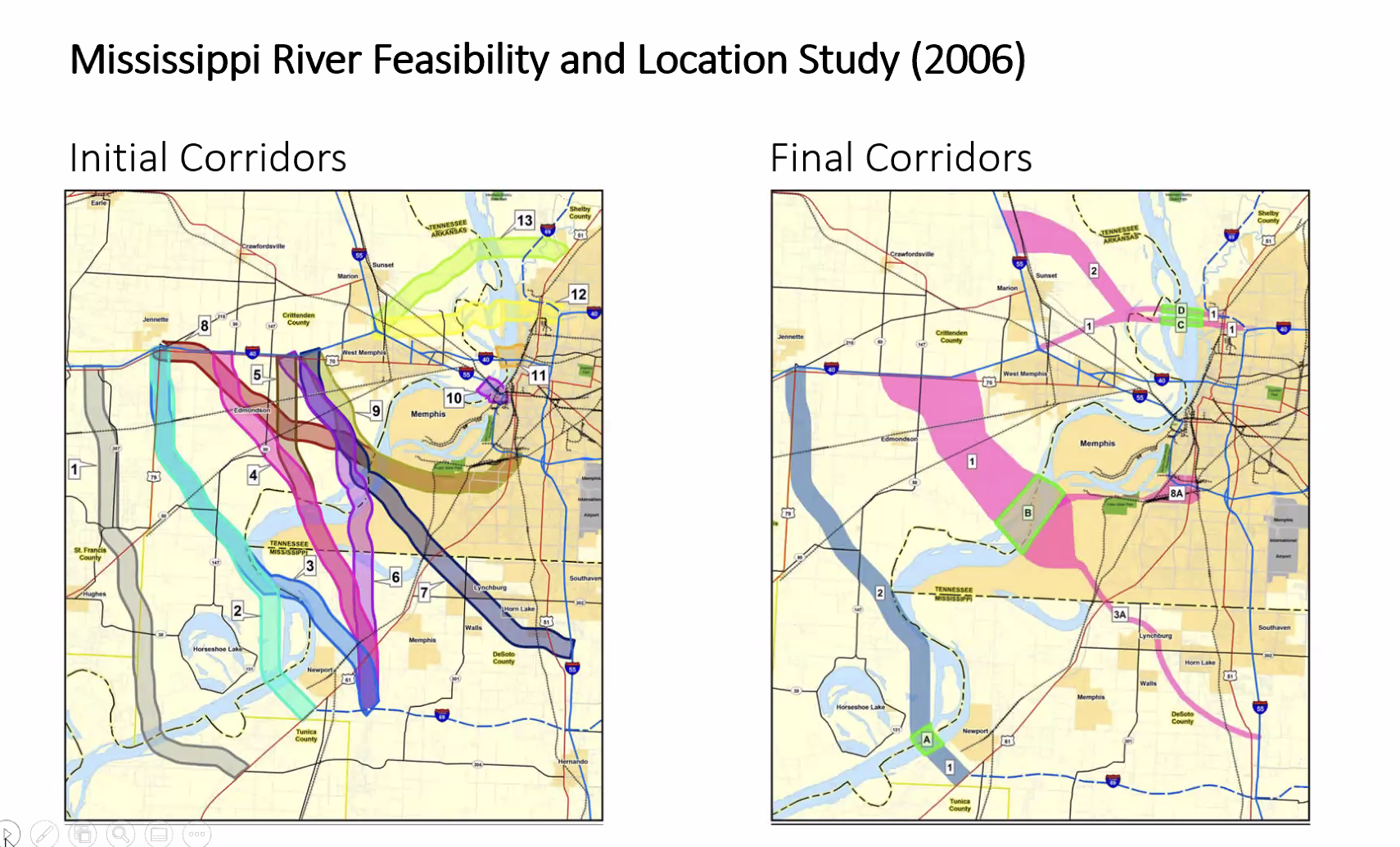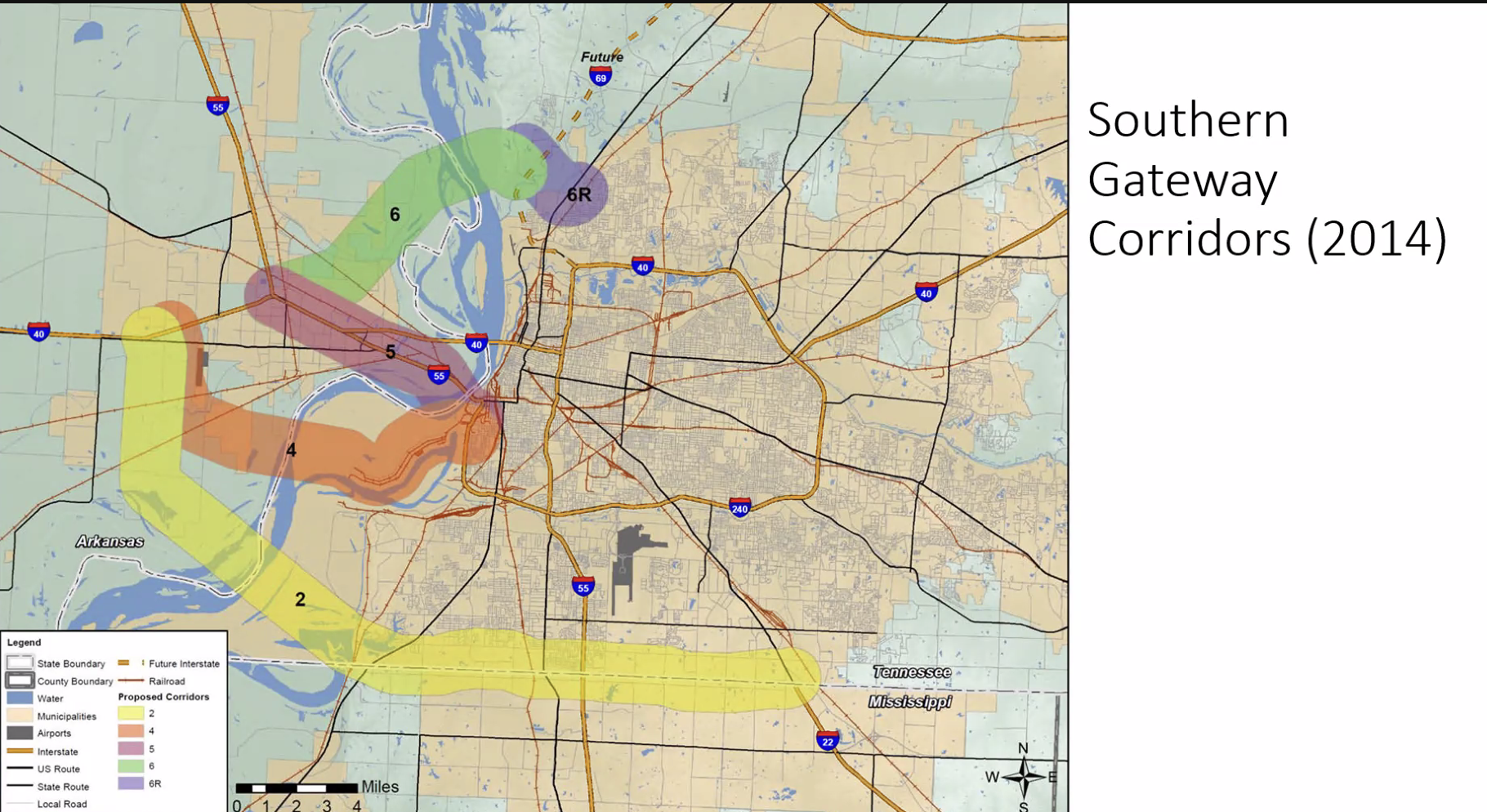Memphis business leaders hope to re-ignite the urgency for a new bridge — a third bridge — across the Mississippi River in a project they’re calling America’s River Crossing.
The Greater Memphis Chamber hosted a call with business leaders, politicians, and transportation leaders from Tennessee and Arkansas Wednesday to make their case for the need of a new bridge. The crossing at Memphis is now served by two bridges, the Hernando De Soto Bridge on the north and the Memphis-Arkansas Bridge on the south. The importance of the crossing (and the need for a new bridge) was demonstrated last year, the group said, when the Hernando De Soto Bridge was closed for months after a crack in the structure was discovered.

The “new” bridge closure pushed all I-40 traffic (estimated to be around 40,000 vehicles daily) to the 73-year-old Memphis-Arkansas Bridge. Transportation experts on the call Wednesday said that bridge is structurally sound and the added traffic did not shorten its life. But the closure did snarl traffic for miles creating hours-long delays in road routes that once took minutes.
“We found out last year that within days of the closure, the movement of people was impacted across the United States and within a week, movement of freight was impacted across the world,” said James Collins, a member of the Chamber’s transportation committee and a principal at Kimley-Horn, a Memphis planning and design firm. “So, this is a definitely a project of national significance.”
West Memphis Mayor Marco McClendon said the closure clogged his city with 18-wheelers using neighborhood streets to bypass traffic. Children couldn’t play in their yards. Road-rage shootings stressed an already stressed police force. Curbs, gutters, and more were damaged and destroyed. But, he said, “God covered West Memphis.”
“If that didn’t do anything else, it underscored how critical the need for a third bridge is to our nation’s supply chain, critical military, and the ability of tourists to move north to south and east to west in our area,” McClendon said. “I’m glad we have learned that a year ago but I look forward to continuing with the progress to ensure our bridges stay functional and keeping the sound of a third bridge into the ears of those who make the decisions.”

That sound rang loudly for weeks last summer as crews worked to repair the bridge. Opinion pieces were published in the daily newspapers and the issue was debated at length on social media, although much of the volume turned down as the bridge re-opened.
The idea sounded far-fetched to some. But the idea has been studied before, many times before. Collins cited the 2006 Mississippi River crossing feasibility and location study. A 2009 regional infrastructure plan by the Chamber included a third bridge in its recommendations. The Southern Gateway plan once again looked at a new bridge here in 2010 but the plan was put on hold indefinitely in 2014.
Those studies sited a new bridge at the Mississippi/Tennessee border, and at the Pidgeon Industrial Park, at the north loop of I-240. Another study suggested simply replacing the I-55 bridge with a new one.
“People have short memories and the bridge closing is in the rear-view mirror, no pun intended” said Bill Dunavant, CEO of Dunavant Enterprises, a cotton merchant with divisions dedicated to logistics and development. “But when you look at a crisis, it creates an opportunity.”
That opportunity is that third bridge, he said. While the bridge project would likely take years to begin (after environmental studies, finding a new location, designing the new bridge, and getting a host of federal approvals), the time to begin funding the project is now, the group said.
“This is a bridge of national significance and one of the most critical crossings in America, as it relates to freight transportation and logistics at the city that is the most critical in the hemisphere or the world for transportation — America’s River Crossing,” said Bobby White, the chamber’s chief public policy officer. “We want to demonstrate the support of the business community in this effort — not to say one [bridge site] or the other — but for our need for starting this project and moving it forward.”





